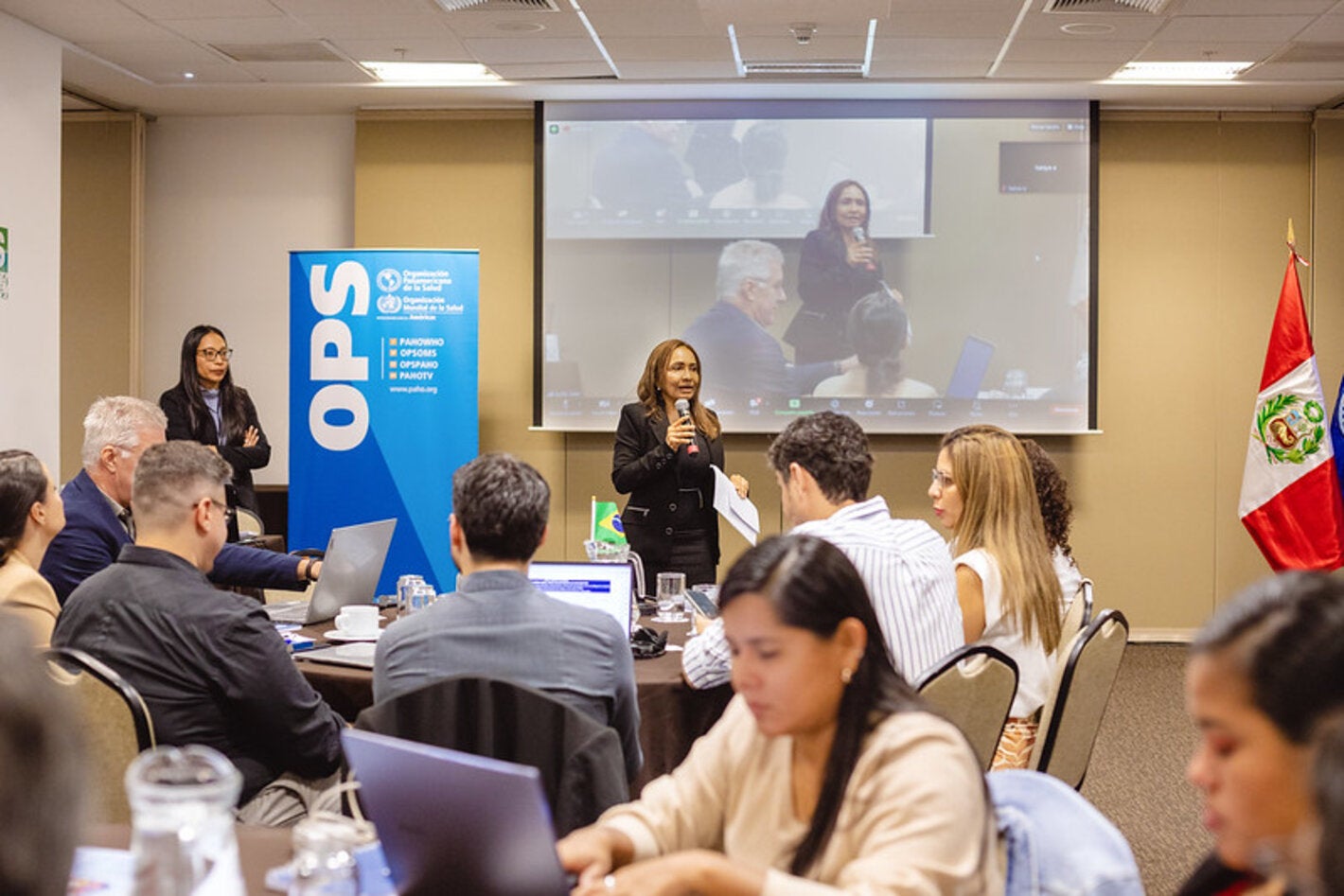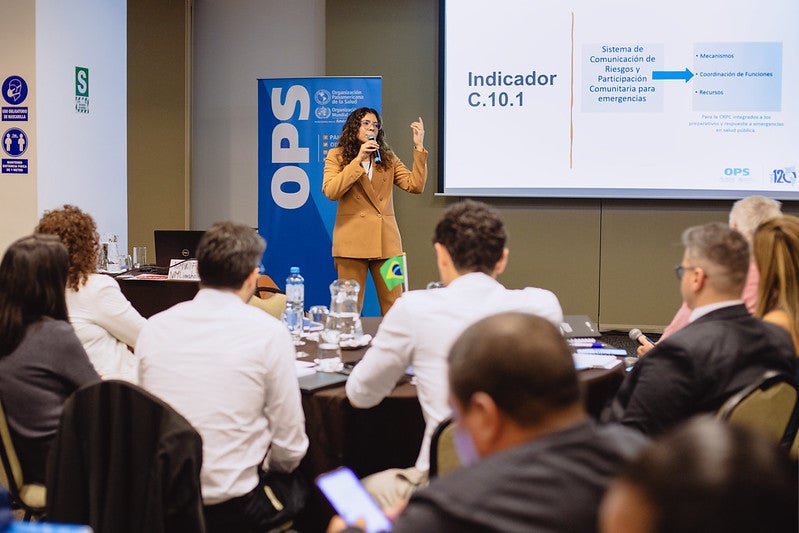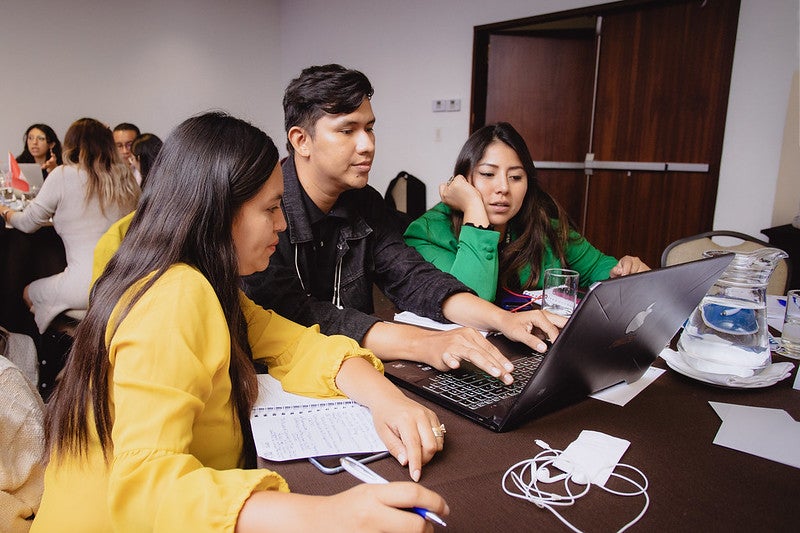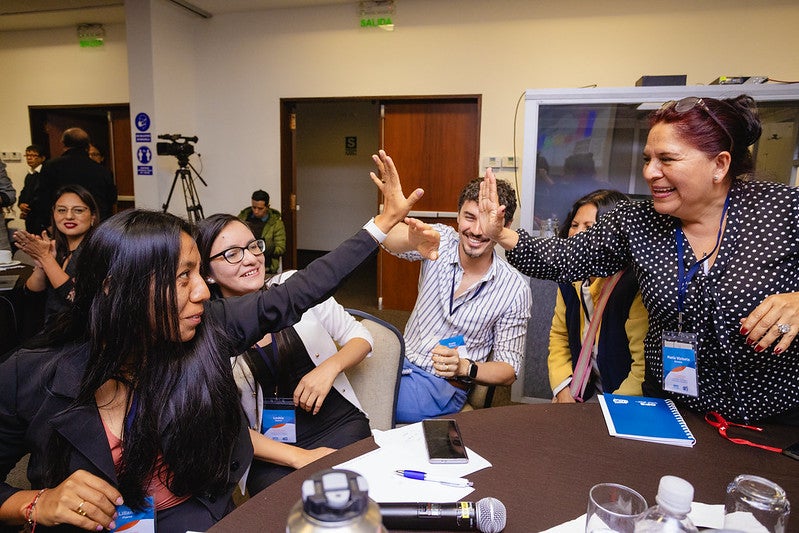
For three days, Lima (Peru) hosted the Subregional Workshop on Risk Communication and Community Participation (CRPC) for Health Emergencies and Vaccination, which was attended by 70 participants from Argentina, Bolivia, Brazil, Colombia, Chile, Ecuador, Paraguay, Peru, Uruguay and Venezuela.
Lima (Peru), Oct. 23, 2023 (PAHO ) - Communications, health promotion, risk management and emergency professionals from ten South American countries met in Lima, Peru, to strengthen capacities and share lessons learned in Risk Communication and Community Participation (CRPC) during preparedness and response to health emergencies, including situations in which vaccination plays a fundamental role in the prevention and mitigation of threats.
The objective of this subregional workshop, organized by the Pan American Health Organization/World Health Organization (PAHO/WHO), was to consolidate a strategic framework for technical cooperation to address CRPC. "During critical situations such as epidemics and pandemics, effective communication plays a crucial role in coordinating emergency response. In addition, providing timely and relevant information to the population accelerates sound decision making, allowing people to make informed decisions and access quality services," explained PAHO/WHO Representative in Peru, Dr. Maureen Birmingham.
During the event there were keynote speeches, exchanges of lessons learned between countries and practical exercises, allowing participants to develop a roadmap based on the tools and theoretical frameworks of the International Health Regulations (IHR) 2005, focusing specifically on the three indicators of the CRPC component of the Self-Assessment Tool for Annual Reporting by States Parties (SPAR).
Analí Lopez, a communicator from the Epidemiology Directorate of the Ministry of Health of Argentina, said that the training allowed her to recall and learn new concepts and theoretical frameworks, as well as to reflect on her own capabilities and work on a proposal to link a new area of health risk management with the existing communication directorate.
Patricia Schroeder, Director of Communications of the Ministry of Public Health of Uruguay, shared her country's experience in the management of the COVID-19 pandemic and the successful vaccination campaign, highlighting the participation of civil society and the collaboration of public and private institutions as key factors in the success of the response. He also stressed the importance of professionalizing communications and maintaining solid multidisciplinary teams over time.
Betiana Martínez, a health specialist from the Health Emergency Response Alert Directorate of the Paraguayan Ministry of Health's, underscored the importance of strengthening the capacities of health personnel in risk communication and sharing experiences related to cyclical epidemics.
One of the key conclusions of the subregional workshop is the need for this training to also reach local authorities in the countries, to reach the communities in an optimal and timely manner. As for this workshop, Dr. Birmingham highlighted the participation of communicators from the health authorities of Peru's 24 departments.
This second Subregional Workshop on Risk Communication and Community Participation for Health Emergencies and Vaccination was consolidated as an enriching space for sharing knowledge, experiences and effective strategies in the field of health risk communication. Professionals from Central American countries have already participated in a first CRPC sub-regional workshop in Panama City in March 2023. A third workshop will be organized in the spring of next year for the Caribbean subregion.








